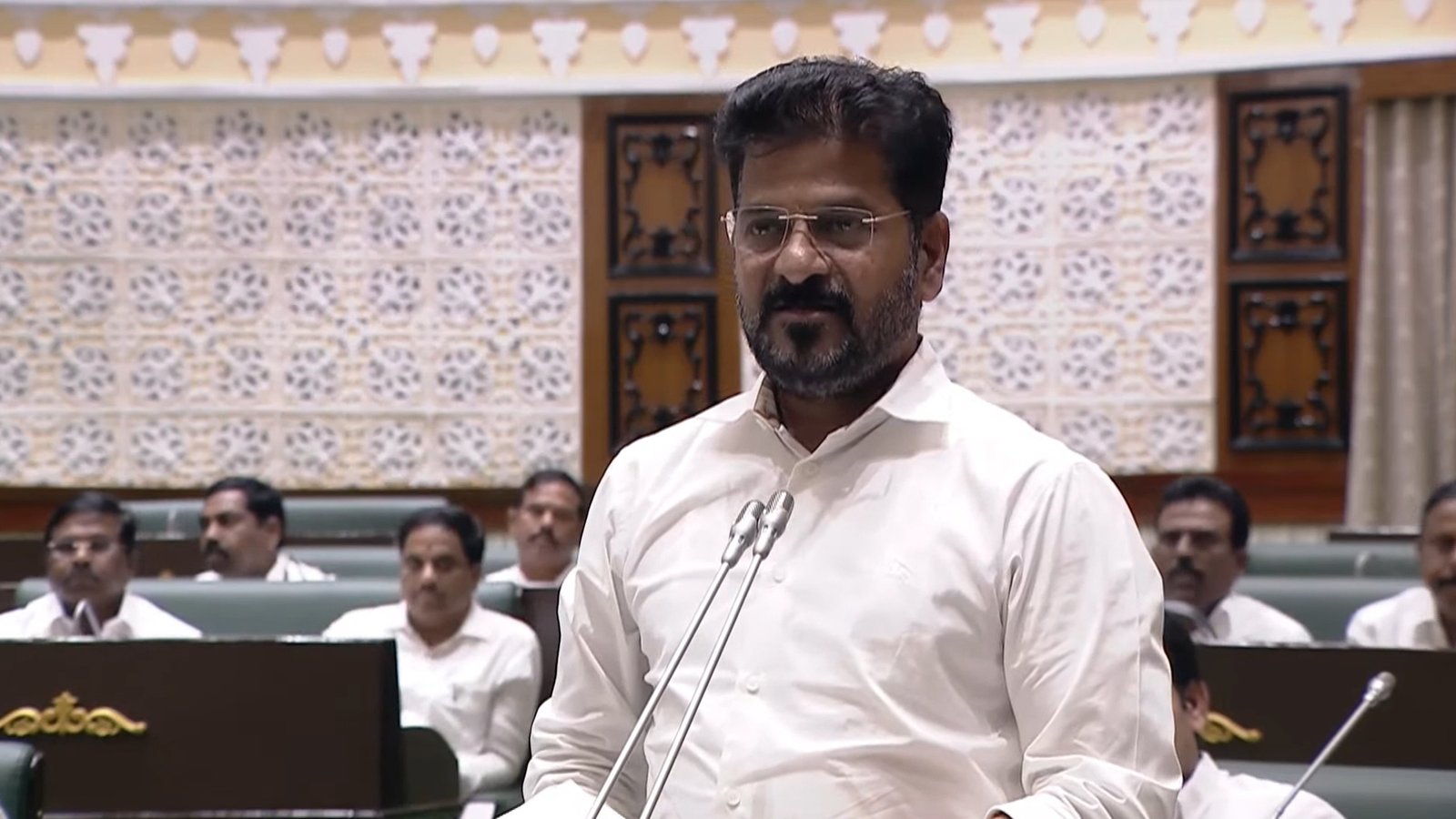The day Revanth Reddy redefined reservation politics
Against a fortress of impossibility,a lone voice became a battle cry. Revanth Reddy, the warrior from the soil, waged a war not just against political giants, but against history itself. With every ounce of will, he turned the improbable into the inevitable. This week, that dream crystallised.
On Sunday, August 31, Telangana witnessed a landmark legislative moment. The Assembly passed the Telangana Municipalities (Third Amendment) Bill, 2025, and the Telangana Panchayat Raj (Third Amendment) Bill 2025, clearing the long-standing roadblock of a 50% cap on reservations.
The Assembly’s resounding vote to shatter the 50% barrier isn’t merely a policy shift; it’s poetic justice, a tear in the fabric of the old order. With this, the Congress government, led by Chief Minister A. Revanth Reddy, has paved the way for 42% reservation to Backward Classes (BCs) in local body elections – a promise made before the 2023 Assembly elections, now put into motion.
Telangana now breathes the air of equality, scripting a watershed chapter in social justice that lights a beacon for all of India, proving that no mountain is too high when climbed for the people.
At one level, this move may look like it is about numbers and constitutional ceilings. But at a deeper level, it is about redefining the social justice structure of Telangana. It is a direct attempt by the Congress government to carve a distinct political identity, and place BC empowerment at the heart of governance.
Why did the 50% barrier matter?
For decades, States have struggled with the Supreme Court-imposed ceiling of 50% on total reservations. SCs and STs receive a quota proportional to their population, but BCs were left at the mercy of this ceiling. In Telangana, despite BCs being a significant share of the population, their representation in local bodies remained capped.
In 2018, the BRS government brought in laws – Panchayat Raj Act (2018) and Municipalities Act (2019) – that tied the State’s hands. “What KCR brought has become the biggest obstacle today,” said Revanth Reddy during the debate. By passing fresh amendments, his government has now sought to break that ceiling, arguing that social realities demand a proportionate response.
Extensive groundwork before legislation
What makes this attempt significant is not only the act of taking a bold move of lifting the ceiling, but also the rigorous preparatory work done to withstand legal scrutiny. The State undertook a comprehensive caste census between February 2024 and February 2025, covering every household. A dedicated BC Commission was formed to study social, economic, and political backwardness. Committees examined practices across the States, and the government collated data to show the necessity of 42% reservation.
This is not a hasty political announcement. It is an exercise based on data, commissions, and constitutional safeguards, giving the State a stronger hand if challenged in courts.
Politics in the Assembly
The passage of the Bills saw sharp exchanges. The BRS, through leaders like Gangula Kamalakar, expressed support for “increasing BC reservations” but advised following the “Tamil Nadu model of pushing the law into the Ninth Schedule to avoid legal quashing”. The BJP, too, on its part, said it supported the principle but accused the Congress of failing to match words with deeds, pointing out unfulfilled promises on BC budget allocations.
However, Revanth Reddy turned the tables on the Opposition and launched a political counter-offensive. He accused the BRS of “lobbying behind the scenes to stall the ordinance” with the Governor, and of not supporting protests in Delhi. He reminded the House that while over 100 MPs from across India stood with Telangana on this issue at Jantar Mantar, BRS MPs were conspicuous by their absence.
The CM’s blunt charge was hard-hitting: “BRS never wanted BC empowerment. Their sorrow, pain, and poison are directed at blocking social justice.”
Deadlines, ordinances, and Centre-State tussle
There was an added urgency to bring the BC quota Bill into existence due to the timing. The Telangana High Court has mandated local body elections by September 30, 2025. With earlier Bills and an Ordinance still pending with the President, the government risked going to polls without fulfilling its BC quota promise.
By passing the Bills afresh in the Assembly, the government ensured that it could claim sincerity and decisiveness, while also exposing what it sees as the Centre’s deliberate delay. Revanth Reddy even revealed that he wrote five times to the Prime Minister seeking an appointment on this issue – without success.
Strengthening social base
The Congress government strives to fulfill its promises and reshape power equations in Telangana. If implemented smoothly, 42% BC reservation in local bodies will dramatically increase representation of BC leaders at the grassroots. This, in turn, could strengthen the Congress’s social base, tilting the balance in its favour in future State, and even national, elections.
It also signals the government’s willingness and commitment to take on constitutional limits and Central apathy head-on. By legislating despite Bills pending with the President, Telangana is pushing the envelope, much like Tamil Nadu did in the past.
Empowerment beyond numbers
Of course, reservation is not just about seats. It is about resources, budgets, and actual empowerment. Once the promised Rs. 1 lakh crore BC fund materialises, and BC officials find space in top posts, it would add a feather to Revanth Reddy’s cap.
Yet, the lifting of the 50% cap is a watershed step, one that could trigger similar moves in other States. For Telangana, it firmly establishes Chief Minister Revanth Reddy as a leader willing to fight political, legal, and institutional battles to expand the social justice framework.
Not tokenism: Telangana’s strong message to Delhi and the nation
In passing these Bills, Telangana has taken a bold stand. It has refused to wait endlessly for Central assent. It has responded to a High Court deadline with legislative clarity, and placed Backward Class empowerment at the centre of governance.
For Revanth Reddy, this is more than just fulfilling a manifesto promise. He is, slowly but steadily, building a legacy as the Chief Minister who dared to lift ceilings, break barriers, and expand democracy at the grassroots.
Whether this survives judicial and constitutional hurdles remains to be seen. But politically and socially, Telangana has already sent out a clear message to the Centre and other States: the era of waiting for social justice is over and the era of action has begun.



Boge Thirupathi
BC – Reservation is very use full back ward classes as per their population and SC- Reservation is very use full for sub castes in the SC Community and in this Mala community (Group-III) they are doubt full of roster points.